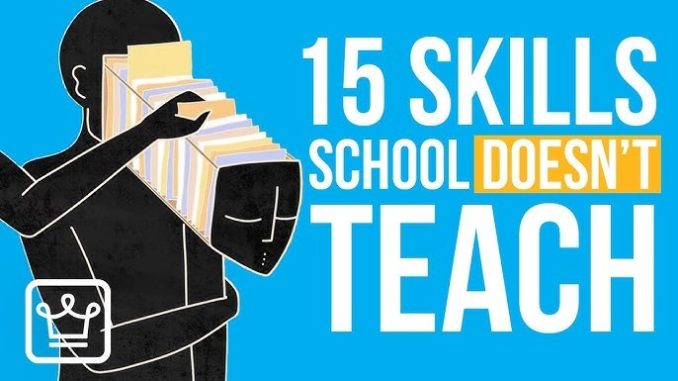
As technology continues to reshape industries, economies, and daily life, the question of what tech skills schools should be teaching has become increasingly urgent. It’s no longer enough for students to be familiar with basic computer functions or to dabble in coding as an extracurricular activity. The modern workforce demands fluency in digital tools, critical thinking about technology’s role, and the ability to adapt to rapid innovation. For educators, policymakers, and business leaders, aligning education with these evolving needs is both a challenge and an opportunity to future-proof the next generation.
One of the most important shifts in tech education is moving beyond tool usage to conceptual understanding. Teaching students how to use a spreadsheet or navigate a word processor is useful, but it doesn’t prepare them to think critically about data, automation, or digital collaboration. Instead, schools should focus on cultivating digital literacy as a mindset—an ability to evaluate sources, understand algorithms, and make informed decisions in a tech-saturated environment. This includes recognizing bias in data, understanding how platforms shape behavior, and being aware of privacy implications. These are not just technical skills; they are civic competencies essential for participating in a digital society.
Programming remains a cornerstone of tech education, but it should be taught with context and purpose. Rather than treating coding as a standalone skill, it can be integrated into problem-solving exercises, creative projects, and interdisciplinary learning. When students build apps to address community issues or automate tasks in science experiments, they begin to see technology as a tool for impact. This approach also demystifies programming, making it accessible to students who might not see themselves as “tech people.” It’s not about producing software engineers in every classroom—it’s about giving all students the confidence to engage with technology meaningfully.
Data fluency is another area where schools can make a significant difference. In business, healthcare, and public policy, decisions are increasingly driven by data. Students should learn how to collect, analyze, and interpret data sets, not just for academic purposes but to understand trends, test hypotheses, and communicate findings. This includes familiarity with visualization tools, statistical reasoning, and ethical considerations around data use. When students understand how data informs decisions, they become more discerning consumers of information and more capable contributors to data-driven environments.
Cybersecurity awareness is essential in a world where digital threats are pervasive. Schools should teach students how to protect their personal information, recognize phishing attempts, and understand the basics of secure communication. But beyond personal safety, there’s a broader need to understand the implications of cybersecurity in business and governance. Students should be exposed to case studies of breaches, learn about encryption, and explore the balance between security and accessibility. These lessons prepare them not only to safeguard themselves but also to contribute to organizational resilience in their future careers.
Collaboration in digital environments is another skill that deserves attention. As remote work and global teams become standard, students must learn how to communicate effectively across platforms, manage shared projects, and navigate asynchronous workflows. This includes using tools like cloud-based document editors, project management software, and video conferencing platforms. But it also involves soft skills—clarity in communication, respect for diverse perspectives, and accountability in virtual settings. These competencies are increasingly valued in business, where cross-functional teams rely on digital collaboration to drive innovation.
Ethical thinking about technology should be woven throughout the curriculum. As AI, automation, and surveillance technologies become more prevalent, students need to grapple with questions about fairness, transparency, and societal impact. This doesn’t mean turning every tech lesson into a philosophy seminar, but it does mean encouraging students to think about consequences. When designing a chatbot, for example, students might consider how it handles sensitive topics or whether it reflects inclusive language. These discussions help students develop a sense of responsibility and prepare them to lead with integrity in tech-driven fields.
Entrepreneurial thinking is another valuable dimension of tech education. Students should be encouraged to identify problems, prototype solutions, and iterate based on feedback. This mindset aligns with the way startups and innovation teams operate, and it fosters resilience and creativity. Whether students pursue careers in tech or not, the ability to think like a builder—to test ideas, learn from failure, and adapt—is universally beneficial. Schools can support this by offering maker spaces, coding clubs, or partnerships with local businesses that provide real-world challenges.
Finally, adaptability must be at the heart of any tech curriculum. The tools and platforms students learn today may be obsolete tomorrow. What matters more is their ability to learn new technologies quickly, evaluate their relevance, and apply them effectively. This means teaching students how to research, how to troubleshoot, and how to stay curious. It’s about cultivating a growth mindset that sees change not as a threat but as an invitation to learn.
In shaping tech education, schools are not just preparing students for jobs—they’re preparing them to participate in a world where technology influences every decision, every interaction, and every opportunity. By focusing on foundational concepts, ethical awareness, and practical skills, educators can equip students to navigate complexity with confidence. For business leaders, this alignment between education and workforce needs is critical. It ensures that the talent pipeline is not only technically capable but also thoughtful, agile, and ready to lead. And in a future defined by rapid change, that kind of preparation is the most valuable skill of all.